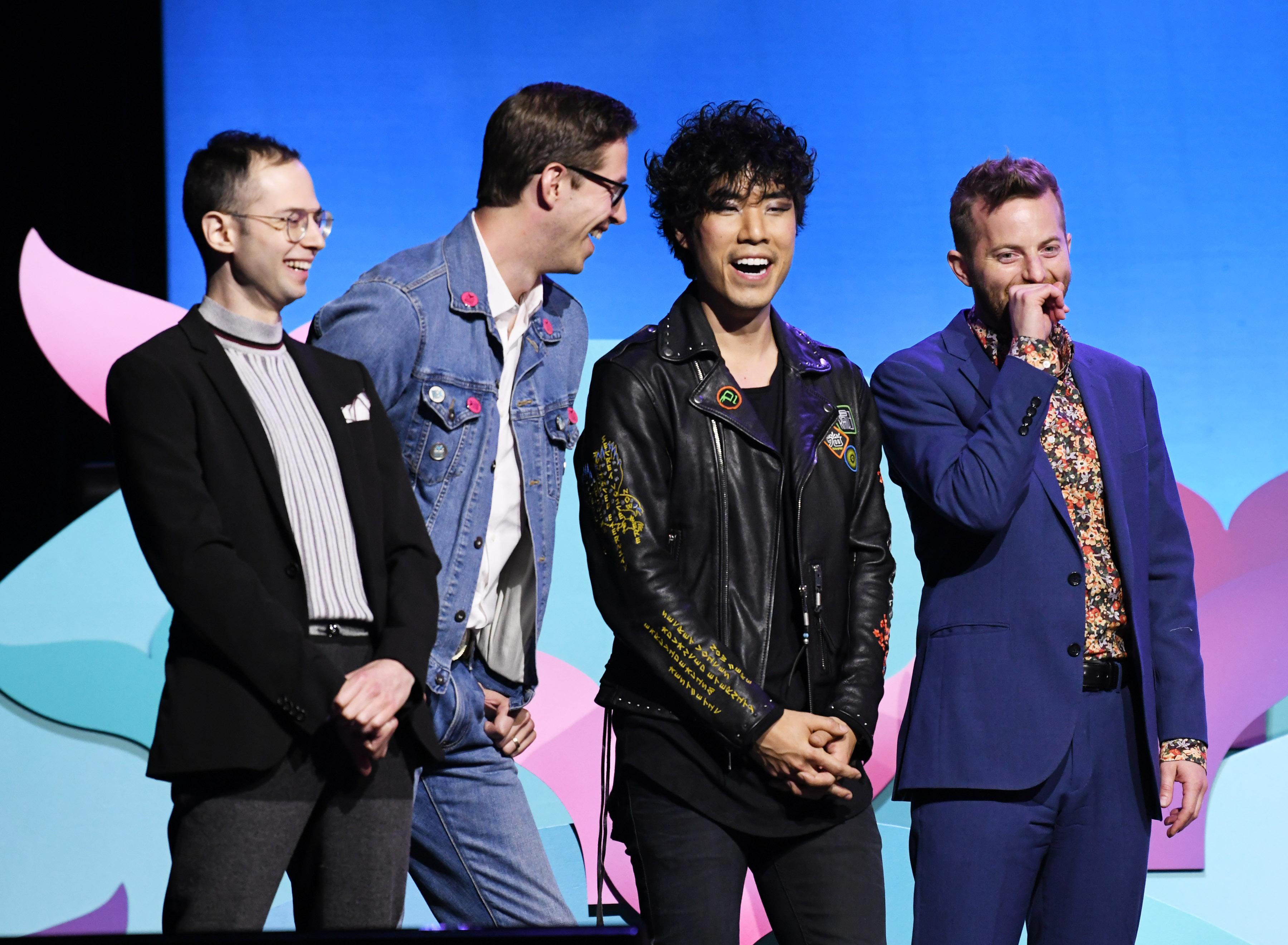If you had never heard of a “Try Guy” and certainly not considered whether one might be cheating on his wife, this week brought a strange surprise. Within approximately 24 hours, an anonymous Reddit post led to viral speculation on Twitter and TikTok about an affair in the Try Guys’ midst, which culminated in an official Instagram announcement that Edward “Ned” Fulmer engaged in a “consensual workplace relationship” with one of his employees while married to his wife. He will no longer be a Try Guy.
This led to quite an uproar online, with some people professing to be “screaming, crying, and throwing up at the same time.” If you cannot possibly fathom why anyone would care about this that much—or at all—allow me to explain.
The Try Guys, a YouTube comedy group who rose to fame in 2014 at BuzzFeed, formed their own independent channel in 2018. The new channel featured the same cast of comedians—Keith Habersberger, Ned Fulmer, Eugene Lee Yang, and Zach Kornfeld—and continued the premise of the original series, wherein the majority of videos feature the four members tackling a new endeavor, guided by an “expert” who provides insight and instruction.
Why would an affair disqualify one of these men from trying things? The success of the Try Guys’ brand has less to do with their shtick itself than with their performance of authenticity, the promise that the character onscreen and the human behind the character are largely the same. This is especially true in their personas as “good guys,” kind and inquisitive and genuine men navigating the world before our eyes. They’re less actors than people you know—in appearance, at least.
To this end, all four of the Try Guys are very publicly partnered, and those partners have become famous themselves. Most prevalent among these relationships is Fulmer’s marriage to Ariel Fulmer, which predates the Try Guys. References to Fulmer’s wife abounded from the beginning. The lilting, nasal quality with which Fulmer says “my wife” has earned catchphrase status, inspiring compilation videos and even official Try Guys merchandise, including a figurine with a plastic Ned that repeats the phrase “my wife” at the press of a button. His public persona is so tied to his wife that even his Instagram bio reads, “Comedian and #1 NYT Bestseller | The Try Guys / (aka @arielfulmer’s Husband).”
The connection the audience feels to these men is very real. As part of a paper on the performance of “good,” nontoxic masculinity on YouTube, I conducted extensive research into the Try Guys, their performance tactics, and their audience base. Of the more than 7.5 million subscribers to the Try Guys YouTube channel, the vast majority of the audience is women—nearly 80 percent. The age demographic skews young, particularly women in their late teens and early 20s. One fan told me that her attraction to the channel is specifically because of who the guys are, or at least present themselves to be. As she put it, “The Try Guys are just themselves.” She said she was drawn to the channel because she wanted that authentic quality in her life.
“I never imagined I would lead my family life so closely with my career,” Fulmer says in the Behind the Try documentary following the guys’ live tour. “I became kind of known for my own relationship, and then we did more of it.” He adds, fatefully: “I just kind of do it because digital media and YouTube culture is, I don’t know, kind of showing who you are as a person.”
During their tenure as Try Guys, the characters of “Zach,” “Keith,” “Ned,” and “Eugene” became the whole show. In a series deeply rooted in personal growth, the characters blended with the real men behind them. Their wives’ and partners’ presence serves a purpose beyond simply creating the illusion of a personal connection, too: They help frame the guys as a certain kind of nonthreatening, aspirational men. “There’s always some layer of performance on top of who you are,” Keith Habersberger, another Try Guy, told me during an interview last year. “So the more I’ve been able to cultivate Keith as a character and have me be the same is great.” In other words, even Keith wants to be like “Keith.” This is the fundamental draw of the channel, and when the facade fell away online this week, the fandom reacted in kind.
The Try Guys had to act quickly when Ned’s character as a devoted husband and father fell apart and breached an essential contract with the audience. (The involvement of an employee in the affair added another unfortunate layer.) Perhaps the guys learned from others who broke this “understanding” with fans. Consider YouTuber David Dobrik, whose charmingly boyish persona was marred by allegations of sexual assault and bullying, or John Mulaney, whose divorce from Anna Marie Tendler and subsequent child with Olivia Munn turned millions of fans against him. It might seem absurd to feel so close to these people, with personas they freely admit they have crafted, but that’s how they sell themselves—and why they suffer when the goods turn out to be fraudulent.
It remains to be seen how this scandal will affect the Try Guys’ primary channel and the other people tangled in the mess of it all. The character “Ned,” idealized by so many as a devoted husband, loving father, and playful example of a better way for masculinity, is in fact just that—not a man, but a character. “Zach,” “Keith,” and “Eugene” will have their work cut out for them.
